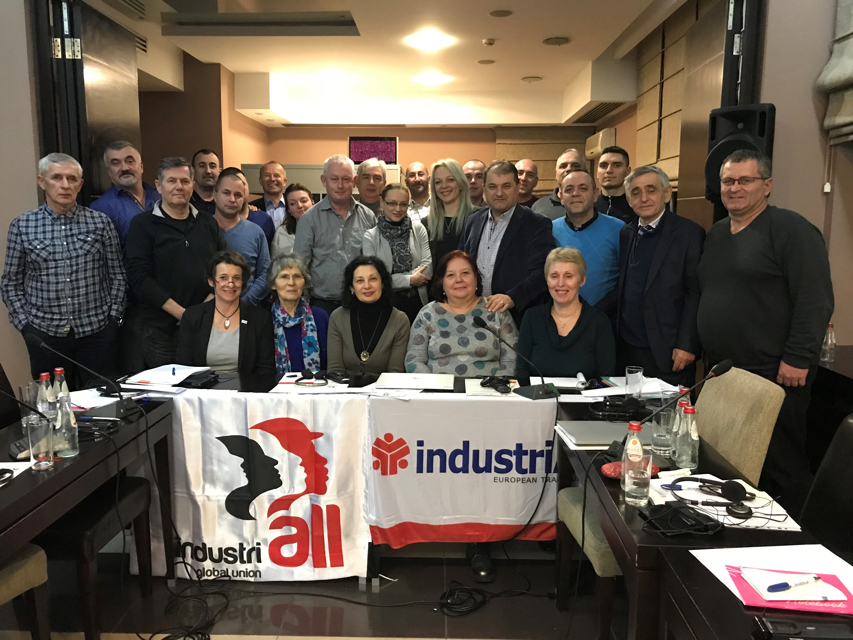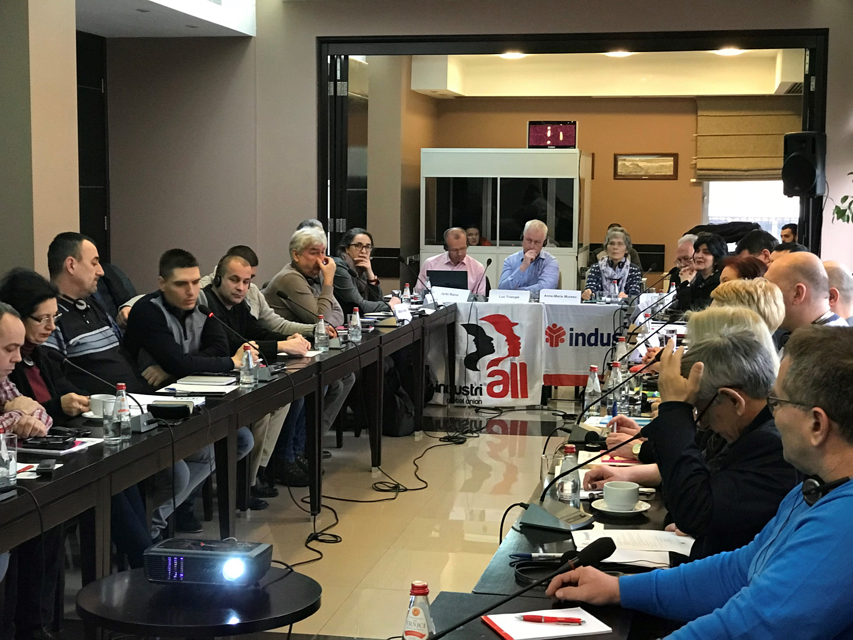“Serbian textile and garment workers cannot be treated as cheap labour."
The seminar in Belgrade on 13-14 February was part of an EU-funded project carried out in cooperation between industriAll Europe and IndustriALL Global. The project targets seven countries; Albania, Bulgaria, Croatia, North Macedonia, Montenegro, Romania and Serbia.
Serbian textile, clothing, leather and shoe industries employ officially more than 64,000 workers. In fact, employment has increased in the past two years. But there are probably tens of thousands of workers in the informal economy.
Three affiliated textile unions organise a total of 10,000 workers in the textile sector. Now there is a new focus on increasing union density and building bargaining power.
“We are growing membership in factories where we are already present, and we have recently organised nine new plants thanks to active field work”, reported Radojko Jovanovic, president of the Autonomous textile workers’ union Sindtkos-CATUS.
After training on organising techniques received at the seminar, the unions will now work on organising plans with the help of a detailed mapping of potential target factories. The principles of cooperation and non-competition between unions were emphasised. With 50,000 unorganised workers in the sector, there will be enough work for everyone.
Another goal is to increase collective bargaining. The unions have only four company level collective agreements. There is no branch agreement in the textile industries, but reaching one is something the unions definitively want.
“For industry level bargaining, we need both stronger unions and a more representative employer counterpart”, said Dragan Vesic from the industrial union IER Nezavisnost.
For representativity, unions must reach 10 per cent membership in the textile industry cluster. An employer association needs to represent 10 per cent of the companies employing at least 15 per cent of the workforce.
Despite increasing employment, the textile sector suffers from the lack of workforce. Young people are not interested in working in an industry where conditions are so poor and wages are so low, Professor Goran Savanovic from the Textile College explained. Average gross wages range from 319 euros per month in clothing industries to 438 euros in textile, well below the industry average of 498 euros.
Bojana Tamindzija from the Clean Clothes Campaign (CCC) network said that the net minimum wage was raised to 230 euros per month, but according to studies, as many as 50 per cent of workers receive less. There is also a lot of unpaid overtime.
Slavko Ignjatovic from the Association of Employers, also owner of a small company, asked for support in convincing foreign garment brands to raise the prices they pay to their suppliers, which operate with small margins under constant cost pressure. That would create space for wage increases.
Professor Petar Djukic from the Faculty of Technology lamented the absence of government representatives who were invited but did not show up. He suggested that the unions together contact the ministries of labour and economy and convince them of the need to cooperate to boost collective bargaining and improve pay to reach living wages.
Luc Triangle said: “Serbian textile and garment workers cannot be treated as cheap labour. These sectors are traditional sectors with good skilled workers and skills that went from generation on generation in Serbia. It is unacceptable that wages are paid under the level of a living wage. Our trade unions will increase their efforts to organise workers and to go with employers into meaningful collective bargaining."
Kemal Özkan, general secretary of IndustriALL Global, said: "The Serbian government is attracting foreign investors with huge subsidies and other financial incentives. At the same time, textile workers are paid poverty wages to sew clothes for big brands. Keeping wages low is not the way to a sustainable textile industry in Serbia. We will continue to support our Serbian affiliates in their efforts to build barganing power and negotiate decent wages for workers in this industry.

